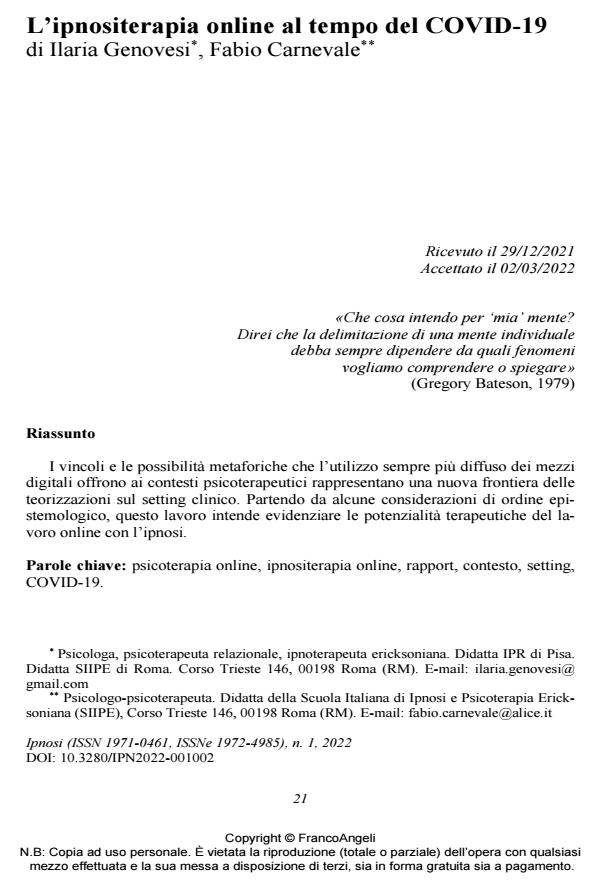Online hypnosis therapy at the time of COVID-19
Journal title IPNOSI
Author/s Ilaria Genovesi, Fabio Carnevale
Publishing Year 2022 Issue 2022/1
Language Italian Pages 11 P. 21-31 File size 210 KB
DOI 10.3280/IPN2022-001002
DOI is like a bar code for intellectual property: to have more infomation
click here
Below, you can see the article first page
If you want to buy this article in PDF format, you can do it, following the instructions to buy download credits

FrancoAngeli is member of Publishers International Linking Association, Inc (PILA), a not-for-profit association which run the CrossRef service enabling links to and from online scholarly content.
The constraints and metaphorical possibilities that the increasingly widespread use of digital media offer to psychotherapeutic contexts represent a new frontier of theories in the clinical setting. Starting from some epistemological considerations, this work intends to highlight the therapeutic potential of online work with hypnosis.
Keywords: Online psychotherapy, online hypnosis therapy, rapport, setting, COVID-19.
Ilaria Genovesi, Fabio Carnevale, L’ipnositerapia online al tempo del COVID-19 in "IPNOSI" 1/2022, pp 21-31, DOI: 10.3280/IPN2022-001002